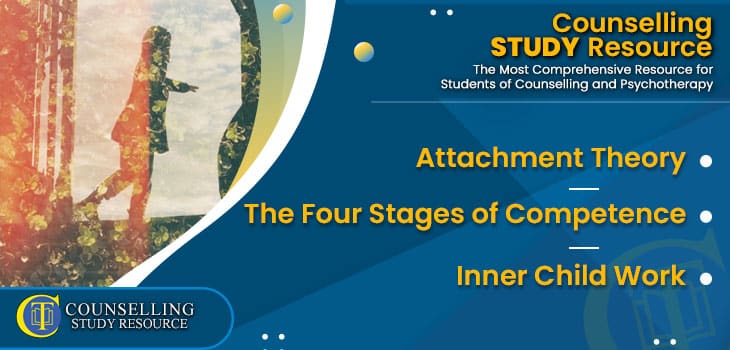See Counselling Skills Used in Real Sessions by Qualified Therapist
Real Sessions – Real Presentations – Real Skills
Gain the competence and confidence to use counselling techniques effectively!

In Episode 228 of the Counselling Tutor Podcast, your hosts Rory Lees-Oakes and Ken Kelly are back with this week’s 3 topics:
What is your Attachment Style?
Attachment theory looks at how we create attachments with parents and caregivers as children, and what affect this has on our ability to form attachments in the future.
The key points of this discussion include:

Real Sessions – Real Presentations – Real Skills
Gain the competence and confidence to use counselling techniques effectively!
The four stages of competence is a process that we all go through whenever we begin to do something unfamiliar to us.

On-demand access to a rich lecture library covering theory, skills, and professional development for counselling students—Mapped to the UK awarding body criteria
“The Student Library has been BRILLIANT, I can’t recommend it enough!
It has been a lifeline in helping me prepare for practice and my first clients. If you’re considering it, go-for-it, it’s absolutely worth it!”
Kelly – Graduated and now in practice.
In this week’s ‘Practice Matters’, Rory speaks with Rachel and Moira on inner child work.
The main points of this interview include:
What is your Attachment Style?

Get on-demand Certified CPD that is implementable in your practice
